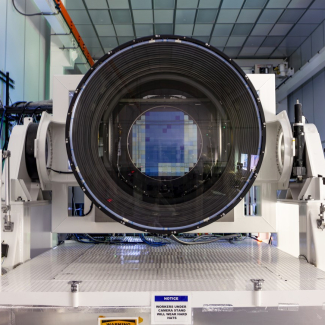
Why do the cores of stars spin more slowly than expected?
Under certain conditions, the cores of stars contract. When this happens, they start to spin faster than the external layers of the star. However, the study of oscillations in stars, asteroseismology, has uncovered an astonishing phenomenon: the cores of such stars actually rotate more slowly than calculations predict. Why is this so? Three French scientists1 , from CNRS, INRIA and ENS-PSL have studied this question and report their findings in an article published in Science on January 20, 2023. Their numerical simulations, which model plasma flow in the deep layers of a star, have shown that the slowing down of the core can be produced by an internal magnetic field. More specifically, plasma flow can amplify a magnetic field to the point where it generates strong turbulent motions. Such turbulence may further amplify the magnetic field until it causes the star's core to spin down. The results obtained with the research team's simulations are also in agreement with asteroseismological observations of many stars. In addition, the simulations show that the magnetic field would be hidden by the outer layers of the star, which explains why no magnetic field of this kind has yet been measured with current techniques.

© Petitdemange et al.
Spin-down by dynamo action in simulated radiative stellar layers. Ludovic Petitdemange, Florence Marcotte and Christophe Gissinger. Science, 20 January 2023.
Contact
Notes
- The research was carried out at the Laboratory for Studies of Radiation and Matter in Astrophysics and Atmospheres LERMA (Observatoire de Paris – PSL/CNRS/CY Cergy Paris Université/Sorbonne Université), the Laboratoire Jean-Alexandre Dieudonné (CNRS/Université Côte d 'Azur/INRIA) and the ENS Physics Laboratory (CNRS/ENS-PSL/Sorbonne Université/Université Paris Cité).


